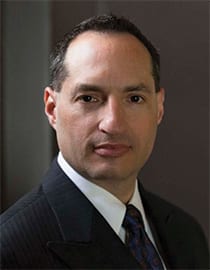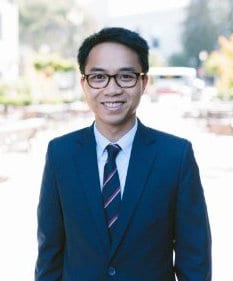By Andrew Cohen

Illuminating murky judicial issues, debunking courtroom myths, updating key developments in state legal practice—all are on the menu January 13 during a daylong conference on the Supreme Court of California. Hosted by Berkeley Law’s California Constitution Center (CCC) and the Hastings Law Journal, the event at UC Hastings College of Law will help judges, practitioners, scholars and students explore timely topics affecting the state’s highest court.
Four state Supreme Court justices are slated to speak at the conference, including former Berkeley Law Professor Goodwin Liu. Chief Justice Tani G. Cantil-Sakauye will kick things off with a conversation about the state of the state judiciary generally and the Supreme Court in particular. She will tackle the courts’ civic education outreach mission, the judicial budget, relations with the other government branches, and how recent changes in the law may impact court operations.
Scholarship about California’s high court and constitution barely existed until David A. Carrillo ’95 founded CCC in 2012. He wanted to increase the study and awareness of the state charter, and its interpretations, upon seeing how state judicial systems were not studied nearly as much as the federal judiciary. As a result, when key state constitutional law issues arose, neither courts nor attorneys had ready access to a comprehensive body of legal scholarship on California’s constitutional provisions. Programs like the upcoming conference have helped fill that gap.
“I only have a target audience in the broadest sense: people who care about the state’s high court, the state judicial branch and substantive state constitutional issues,” Carrillo said. “To me, that sounds like most lawyers, and I think anyone who cares about using the laws and courts of their state to protect their interests will benefit. I also hope people are reminded of the important federalism principle that a state can protect its citizens from an unfriendly federal government.”
The conference’s morning panels will review major recent Supreme Court decisions in criminal and civil law, and explain the procedural requirements to petition for review by the court—including statistics on grants and denials and strategic tips for enhancing petitions.
The afternoon program will feature a discussion on the future of the State Bar of California and current reform efforts; and a panel on the current state of California’s privacy law highlighting areas of conflict and common interest among individuals, business and government. After Justice Liu shares his thoughts on the high court’s role, Berkeley Law Interim Dean Melissa Murray will moderate a Q&A session with Justices Carol A. Corrigan and Leondra R. Kruger.
Enlightening the next generation
Since its launch, the center has quickly expanded its programs through a mix of classes and research projects; a conference on popular constitutional change in Iceland; and a forthcoming analysis of the Supreme Court’s judicial decisions over the past 100 years. Carrillo, who noted that, “some top-secret projects may be revealed at the conference,” has seen first-hand how raising understanding of the court’s work provides myriad benefits.
“It helps practitioners develop California constitutional law through litigation, and develops their working knowledge of the court,” he said. “For academics, I want to inspire more study, thinking and writing about the state constitution and courts. And students need to know that federal law and federal clerkships are only one aspect of the nation’s legal systems.”

At the conference, those students will include 20 from the California Law Review—one of the event’s co-sponsors.
“This is a welcome forum to explore issues and policies affecting the state court system and its role in relation to the federal court system,” said Editor-in-chief Zachary Nguyen ’17. “As students, we primarily read federal cases and learn about the federal system, so this is such a unique opportunity that we typically don’t get. It will be great to hear from—and interact with—both federal and state judges, scholars, practitioners and other students.”
With three seats on the high court changing since 2011 and none of the three new justices having prior judicial experience, the court has encountered a growing amount of attention. Whatever the court’s makeup, Carrillo and Berkeley Law students stand poised to help elucidate the impact—and import—of its decisions.
“This center is still the best and only academic locus for studying the California constitution and the California Supreme Court,” he said.